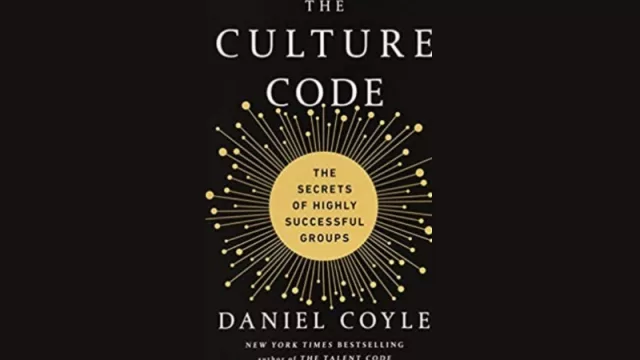One of the key attributes of the book is its focus on the importance of psychology in building effective teams. Coyle argues that, to create a solid team culture, it is fundamental to understand how the human mind works and how we can leverage it to improve collaboration and creativity within teams.
This book dramatically illustrates the importance of clarity in communication and why culture matters. Coyle argues that clear and effective communication is essential to building a strong team culture. This involves having clear goals and a common language for communication, as well as fostering open and honest communication among team members.
Moreover, the book highlights the importance of trust in building a solid team culture. Coyle argues that trust is essential for team members to feel secure in sharing ideas and openly expressing their opinions. To build trust, it is important to establish personal relationships and foster vulnerability and honesty within the team.
The book also develops its focus on the importance of continuous learning and constant improvement. Coyle argues that effective teams do not settle for mediocrity but always seek ways to improve and grow. This involves fostering an environment of experimentation and continuous learning, in which mistakes are accepted as learning opportunities.
One of the reasons why it is important for business leaders to read "The Culture Code" is that the book provides a deep understanding of how business cultures work and how they can be improved to maximize performance and productivity. Rather than focusing on conventional business strategies, the book focuses on the importance of human relationships and the impact they have on business success.
Moreover, the book offers a pragmatic approach to improving business culture, providing a set of tools and techniques that leaders can use to improve collaboration, communication, and trust among team members. These techniques include establishing clear standards and creating a safe and positive work environment.
Reading "The Culture Code" can also help business leaders change their priorities and perspectives. Rather than focusing exclusively on achieving financial results, the book emphasizes the importance of business culture in creating a healthy and positive work environment. By doing so, leaders can improve employee morale, increase employee retention and loyalty, and ultimately improve the financial success of the company.
Why read this book?
Regarding the benefits of reading "The Culture Code", several can be highlighted. First, the book provides a deeper understanding of the importance of business culture and how it affects organizational success. This can help business leaders develop a broader perspective and make more informed and strategic decisions.
Second, the book provides a set of practical tools and techniques that business leaders can use to improve business culture in their organizations. This can help improve collaboration, communication, and trust among team members, which in turn can lead to greater productivity and organizational success.
Finally, reading "The Culture Code" can help business leaders improve their own leadership and management skills. By better understanding how business culture works, leaders can identify areas for improvement in their own leadership and develop more effective skills for managing and motivating their teams.












Tu opinión enriquece este artículo: